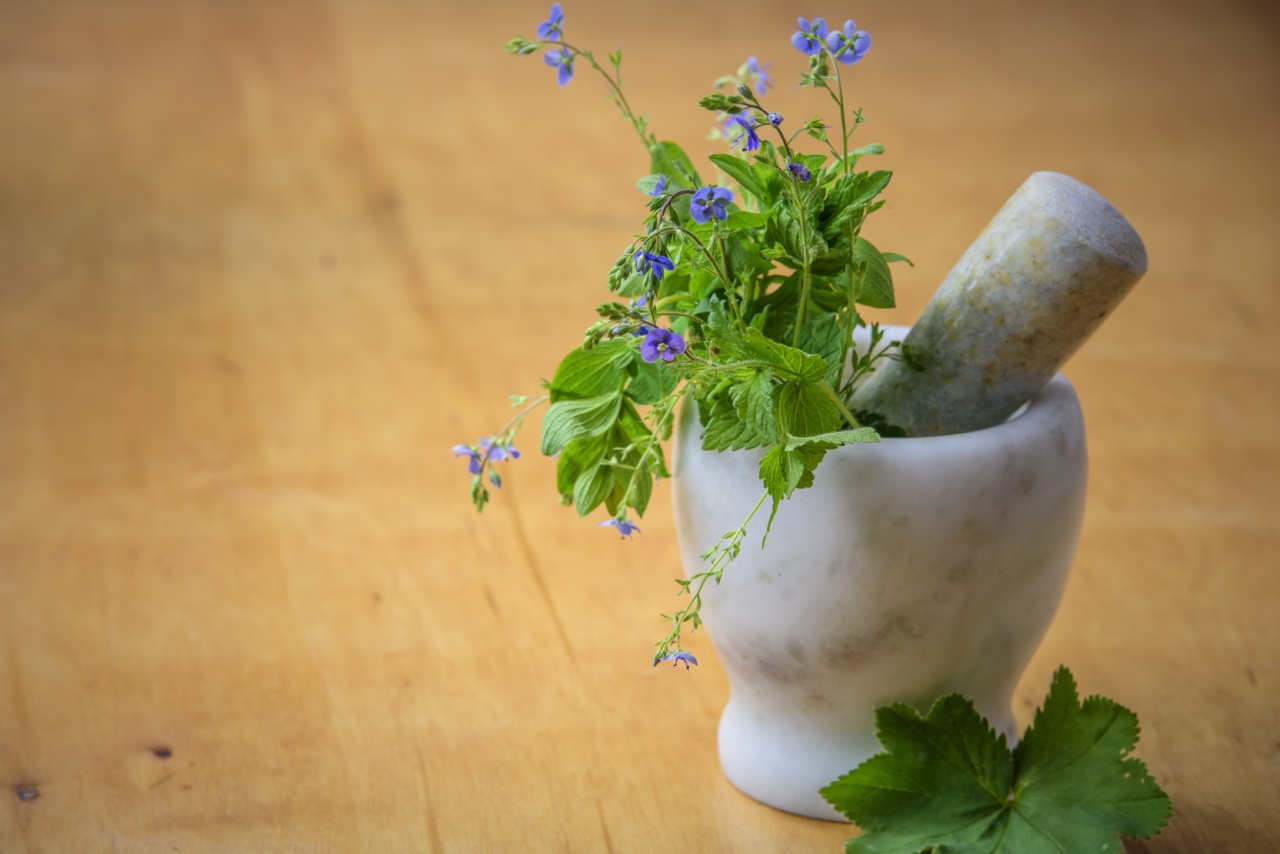Inflammation is a natural response of the body to protect itself from harmful stimuli such as pathogens, irritants, or damaged cells.
However, when inflammation becomes chronic, it can lead to various health issues, including heart disease, cancer, and autoimmune disorders. Conventional treatments for inflammation often involve using non-steroidal anti-inflammatory drugs (NSAIDs) or steroids, which can have adverse side effects in the long run.
As a result, many people are turning to alternative options, including anti-inflammatory herbs, to promote health and healing.
Turmeric
Turmeric, commonly known as the golden spice, has been used for centuries in traditional medicine for its anti-inflammatory properties.
The key compound in turmeric, curcumin, has been extensively studied for its ability to reduce inflammation by blocking molecules that play a role in the inflammatory response. Research suggests that curcumin may be beneficial in managing conditions such as arthritis, inflammatory bowel disease, and even certain types of cancer.
Ginger
Ginger is another powerful herb that possesses potent anti-inflammatory properties. It contains compounds called gingerols and shogaols, which have been found to inhibit the production of pro-inflammatory molecules in the body.
Studies have shown that ginger may be effective in reducing pain and inflammation associated with conditions like osteoarthritis and rheumatoid arthritis. Additionally, ginger has also been shown to alleviate symptoms of gastrointestinal distress, such as nausea and indigestion.
Green Tea
Green tea, a popular beverage consumed worldwide, is rich in polyphenols and catechins, which are known for their anti-inflammatory and antioxidant effects.
These compounds have been found to modulate inflammatory pathways and may help reduce the risk of chronic diseases linked to inflammation, including cardiovascular disease and certain cancers. Adding green tea to your daily routine not only provides anti-inflammatory benefits but also offers numerous other health advantages.
Boswellia
Boswellia, commonly known as Indian frankincense, has a long history of use in Ayurvedic medicine for its anti-inflammatory properties. It contains boswellic acids that inhibit the production of inflammatory molecules in the body.
Research suggests that boswellia may be beneficial in managing inflammatory conditions such as osteoarthritis, asthma, and inflammatory bowel disease. Moreover, boswellia has demonstrated potential in reducing pain and improving joint function in individuals with arthritis.
Rosemary
Rosemary is not just a culinary herb but also possesses anti-inflammatory properties. It contains rosmarinic acid, a compound known for its strong antioxidant and anti-inflammatory effects.
Studies have shown that rosemary extract can inhibit the production of inflammatory enzymes and suppress the inflammatory response in the body. Additionally, rosemary may also have neuroprotective properties and could potentially aid in the prevention of neurodegenerative diseases.
Resveratrol
Resveratrol is a natural compound found in various plants, including grapes, berries, and peanuts. It is well-known for its anti-inflammatory and antioxidant properties.
Research suggests that resveratrol may help decrease inflammation and oxidative stress, thereby reducing the risk of chronic diseases like heart disease, diabetes, and certain types of cancer. While red wine is often associated with resveratrol, it’s important to consume it in moderation and explore other food sources or supplements for an optimal intake.
Cayenne Pepper
Cayenne pepper contains a compound called capsaicin, which gives it its characteristic spiciness. Capsaicin has been shown to possess anti-inflammatory properties by reducing the production of inflammatory substances in the body.
Additionally, capsaicin may also help alleviate pain by desensitizing nerve receptors. While cayenne pepper can be consumed to derive its anti-inflammatory benefits, it’s essential to use it in moderation and be cautious if you have a sensitive digestive system.
Garlic
Garlic, known for its distinct flavor and aroma, has been used for centuries for its medicinal properties. It contains sulfur compounds that have potent anti-inflammatory effects.
Studies have shown that garlic may help modulate the immune response and reduce inflammation in conditions like rheumatoid arthritis. Additionally, regular garlic consumption has been associated with a decreased risk of cardiovascular disease and certain types of cancer.
Holy Basil
Holy basil, also known as tulsi, is considered a sacred herb in India and has been used in Ayurvedic medicine for its numerous health benefits. It contains eugenol, rosmarinic acid, and other compounds that possess anti-inflammatory properties.
Holy basil has been found to inhibit the production of inflammatory molecules like cytokines and may help reduce inflammation associated with conditions like arthritis and inflammatory bowel disease. Moreover, holy basil also exhibits adaptogenic properties, aiding the body’s response to stress.
Black Pepper
Black pepper does more than just add flavor to your dishes—it also contains a compound called piperine, which has been shown to possess anti-inflammatory actions.
Piperine has been found to inhibit the production of pro-inflammatory enzymes and reduce inflammation in the body. Additionally, piperine may enhance the bioavailability of certain nutrients, making it a valuable addition to your meals. Combining black pepper with turmeric can further enhance the absorption of curcumin, maximizing its anti-inflammatory potential.
The Future of Anti-Inflammatory Herbs
As more research is conducted on the potential health benefits of herbal remedies, the field of anti-inflammatory herbs continues to expand.
Scientists are exploring the mechanisms of action behind these herbs and their potential applications in managing various inflammatory conditions. It is important to note that while herbs can offer alternative options for promoting health and healing, they should not replace medical advice or prescribed treatments.
It’s always recommended to consult with a healthcare professional before incorporating herbs into your healthcare routine.































